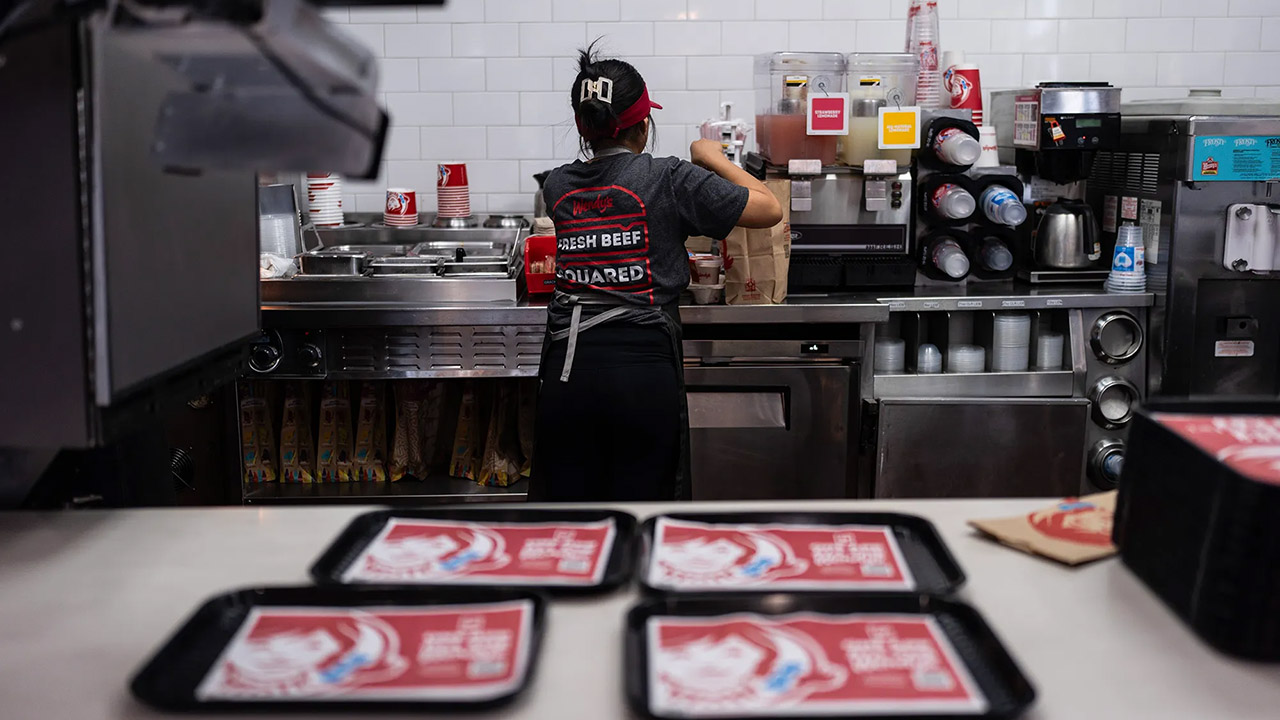Six months after California's $20 minimum wage for fast food workers took effect, debate rages over its economic impact. (AP/Jae C. Hong)

- The $20 wage resulted from a legislative compromise, replacing a more expansive law opposed by the industry.
- Gov. Newsom claims job growth, while industry groups report closures and reduced hours for workers.
- Economists warn of potential negative impacts on vulnerable workers, particularly youth from low-income households.
Share
|
Getting your Trinity Audio player ready...
|
Every session of the California Legislature seems to produce at least one bill that generates high-octane political debate and media attention.

Dan Walters
CalMatters
Opinion
As the 2023-24 session winds down this week, Senate Bill 1047, which would impose rules on artificial intelligence developers, is generating fierce lobbying and drawing global interest.
During the final days of last year’s session, the focus was on a very different issue — whether the state should impose a $20-per-hour minimum wage for fast food workers and create a Fast Food Council to oversee working conditions.
A year before, Assembly Bill 257 created the council and empowered it to set an initial minimum wage of at least $22 an hour, while assuming that franchised fast food outlets were subsidiaries of the parent company, rather than independently owned.
Related Story: California Minimum-Wage Jump to Hit Virus-Battered Companies
Industry Response and Legislative Compromise
The fast food industry responded with a referendum that, if ratified by voters, would cancel out the new law, thus renewing the debate in the 2023 session. A last-minute deal repealed AB 257 and substituted another measure, AB 1228, that dictated a $20 minimum wage and removed what the industry considered to be a threat to the franchise system. In return, the referendum was dropped.
The $20 wage took effect last April, but only after a new squabble erupted over which sellers of food would be covered, colored by a Bloomberg article alleging that Newsom had demanded an exemption to benefit a campaign donor who owns two dozen Panera locations in California.
Newsom declared that the story was “absurd” and gave assurances that Panera and other similar businesses would be covered. The businessman, billionaire Greg Flynn, also said he would honor the $20 wage.
Related Story: How Has Fast Food’s $20 Minimum Wage Affected Employment? Data Shows ...
Debating the Impact of the New Wage
Six months after the $20 wage took effect there’s a new debate in political, media and academic circles over its impact.
Fast food prices have been increasing, but how much higher wages are driving the rise and how fast food operations have changed are two new issues.
This month, Newsom declared that California fast food outlets had created 11,000 new jobs since the law was signed.
“What’s good for workers is good for business, and as California’s fast food industry continues booming every single month our workers are finally getting the pay they deserve,” Newsom said. “Despite those who pedaled lies about how this would doom the industry, California’s economy and workers are again proving them wrong.”
Related Story: Is California’s $20 Minimum Wage to Blame for Loss of 10,000 Fast-Food ...
Industry and Economic Experts Weigh In
The industry didn’t agree.
“Every day you see headlines of restaurant closures, employee job losses and hours cut, and rising food prices for consumers,” the International Franchise Association said in a statement. “Local restaurant owners in California are already struggling to cope with the $20/hour wage, as the Fast Food Council considers additional wage increases. All the while, workers and consumers are feeling the pinch.”
Brooke Armour, president of the California Center for Jobs and the Economy, an adjunct of the Business Roundtable, criticized Newsom’s declaration as reflecting just one month of preliminary data and concluding, “Despite what some are saying, the data are clear: newly passed fast food minimum wage laws are leading to job losses in California.”
Christopher Thornberg, founding partner of Beacon Economics, also was critical in an analysis of the state’s economic trends. “California’s well-intended push to reduce income inequality via wage floors is beginning to have a significant negative impact on some of our most vulnerable workers — our youth, particularly those from lower income households,” Thornberg wrote.
What California has wrought in the fast food industry could be the harbinger of more direct regulation of other industries, and not just in California, for better or worse. It’s not surprising, therefore, that its effects will be debated ad nauseam.
About the Author
Dan Walters has been a journalist for nearly 60 years, spending all but a few of those years working for California newspapers. He began his professional career in 1960, at age 16, at the Humboldt Times.
CalMatters is a public interest journalism venture committed to explaining how California’s state Capitol works and why it matters. For more columns by Dan Walters, go to calmatters.org/commentary.
Make Your Voice Heard
GV Wire encourages vigorous debate from people and organizations on local, state, and national issues. Submit your op-ed to bmcewen@gvwire.com for consideration.
RELATED TOPICS:
Categories

Amazon’s AWS Reports Outage After ‘Objects’ Strike UAE Data Center

















